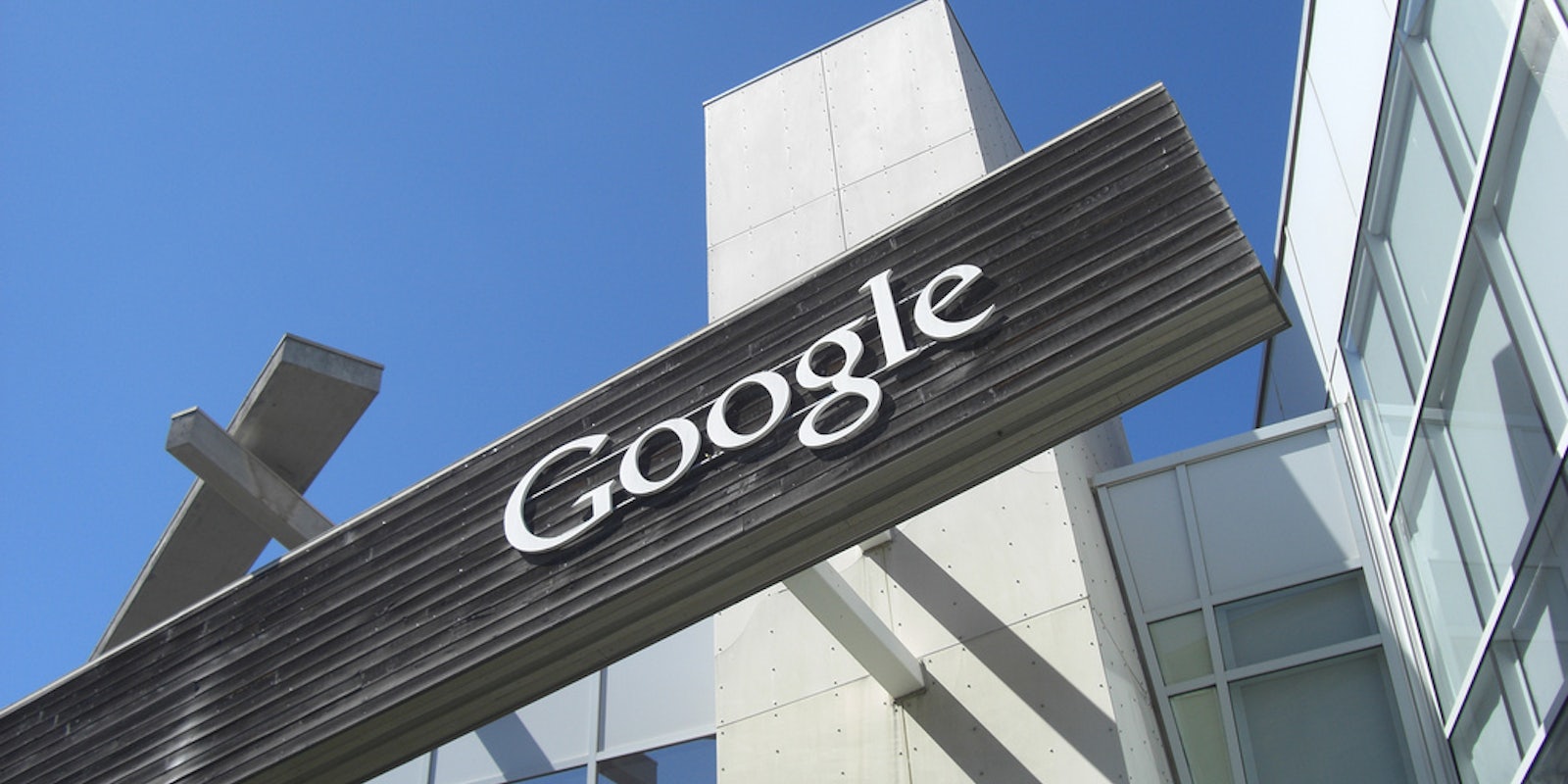The specter of overage fees for exceeding one’s monthly data cap is scaring too many people away from streaming content for Google’s tastes. The company, already the maker of the world’s dominant smartphone operating system, now plans to fire a shot across the bow of smartphone service providers—and consumers stand to benefit.
The Wall Street Journal reports that Google has been lobbying the Federal Communications Commission (FCC) to open up a segment of unused, inexpensive spectrum for the company to develop without a license. Google’s proposal would free up as much as 150 megahertz of spectrum on the 3.5GHz band and would leave some of it available for other companies to use as well.
Mobile carriers generally use spectrum on lower bands because they carry farther and enable providers to build a bigger network. The 3.5GHz band, which is currently used only for certain military applications and rural Internet services, can deliver fast speeds but within a limited range. The high-band airwaves are thus useful for handling heavy data loads in densely populated areas.
Network operators could use the 3.5GHz spectrum to build fast wireless networks in condensed areas—like an apartment building or a sports stadium. This could be done inexpensively, allowing operators to extend cheap Internet access to the public, a particularly promising idea in low-income communities.
What scares wireless Internet service providers (ISPs) about Google’s plan is the rhetoric the company has used to justify its request to the FCC. Google has argued that existing spectrum auctions afford major wireless carriers like AT&T and Verizon an unfair advantage, allowing them to promote artificial spectrum scarcity while capping data for their customers.
According to an FCC filing obtained by the Journal, Google executives told an FCC commissioner during a September 2014 meeting, “The broadband ecosystem will be well-served by a policy environment that removes barriers to investment, discourages monetization of scarcity, and empowers consumers.”
Google’s plan is to treat the spectrum it would receive from the FCC like a broader version of a home Wi-Fi connection. Where it builds its own networks, it hopes customers will use them to access data-gobbling Google-owned products like YouTube or the Google Play Store.
Wireless spectrum isn’t Google’s first rodeo as an ISP. For several years, it has operated fiber-optic networks in select cities as part of its Google Fiber campaign. Google Fiber, the search giant’s ongoing effort to provide faster wired connections, continues to roll out in new cities across the U.S. In 2013, Google announced Project Loon, an experimental program to provide remote areas with wireless Internet access via hot-air balloon.
Google first begin planning to lobby the FCC for spectrum on the 3.5GHz band in 2012. Since 2013, it has lobbied the agency more than any other company, bringing up spectrum in at least 10 meetings and filing more than 100 pages on the topic.
The FCC could finalize rules for the 3.5GHz spectrum band as early as this year.
Photo via Shawn Collins/Flickr (CC BY 2.0)
